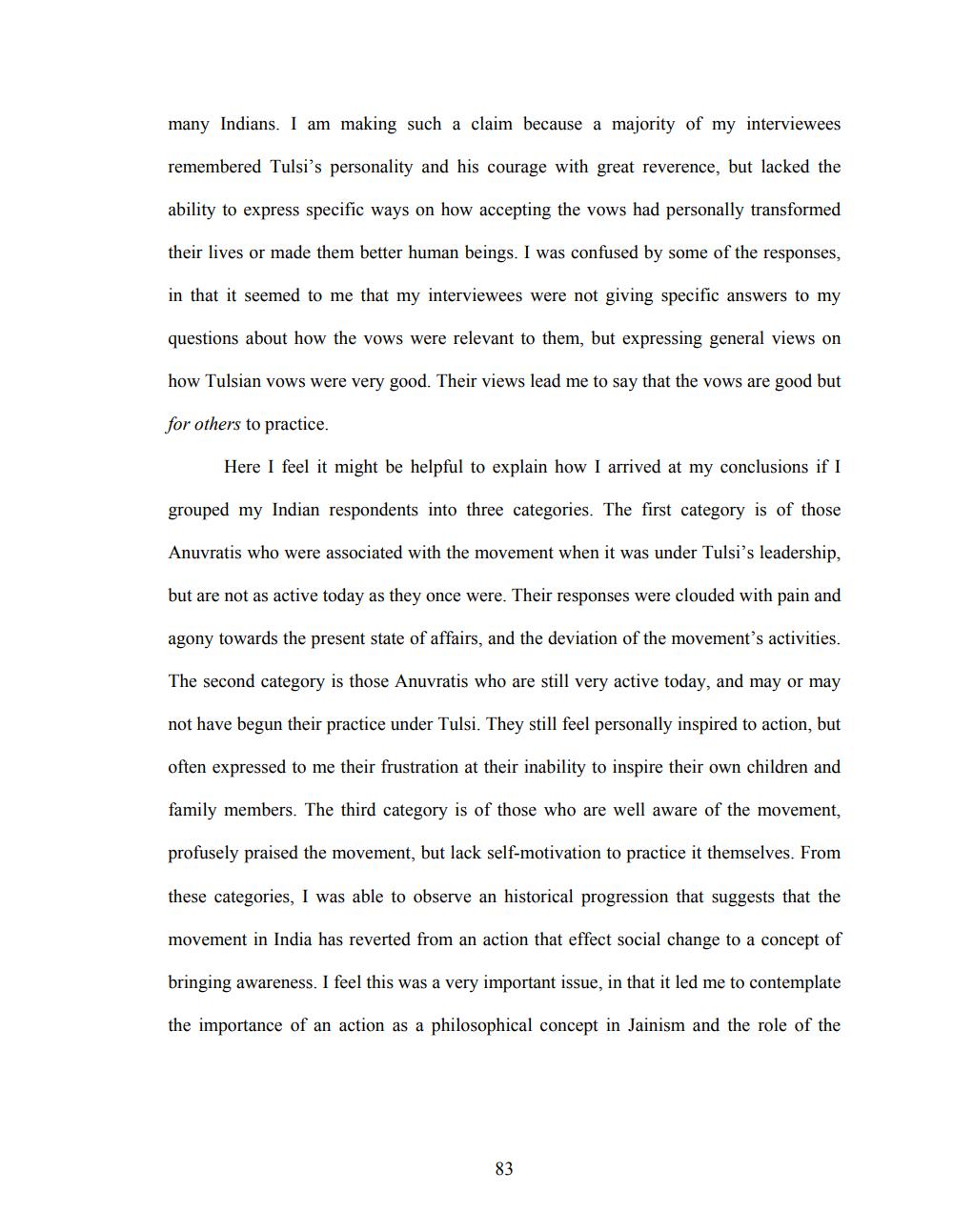________________
many Indians. I am making such a claim because a majority of my interviewees
remembered Tulsi's personality and his courage with great reverence, but lacked the
ability to express specific ways on how accepting the vows had personally transformed
their lives or made them better human beings. I was confused by some of the responses,
in that it seemed to me that my interviewees were not giving specific answers to my
questions about how the vows were relevant to them, but expressing general views on
how Tulsian vows were very good. Their views lead me to say that the vows are good but
for others to practice.
Here I feel it might be helpful to explain how I arrived at my conclusions if I
grouped my Indian respondents into three categories. The first category is of those
Anuvratis who were associated with the movement when it was under Tulsi's leadership,
but are not as active today as they once were. Their responses were clouded with pain and
agony towards the present state of affairs, and the deviation of the movement's activities.
The second category is those Anuvratis who are still very active today, and may or may
not have begun their practice under Tulsi. They still feel personally inspired to action, but
often expressed to me their frustration at their inability to inspire their own children and
family members. The third category is of those who are well aware of the movement,
profusely praised the movement, but lack self-motivation to practice it themselves. From
these categories, I was able to observe an historical progression that suggests that the
movement in India has reverted from an action that effect social change to a concept of
bringing awareness. I feel this was a very important issue, in that it led me to contemplate
the importance of an action as a philosophical concept in Jainism and the role of the




